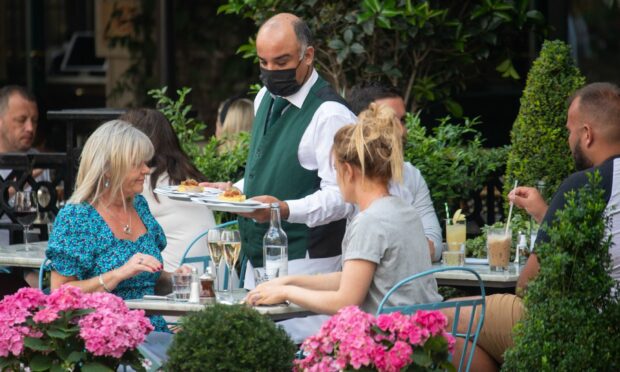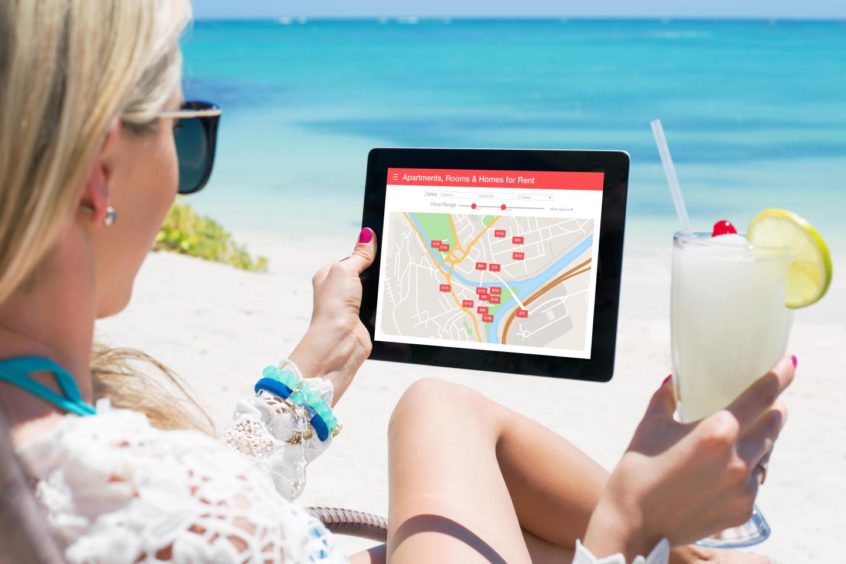UK consumers are increasingly splashing out on non-essential purchases as Covid restrictions continue to ease, new research has revealed.
Spending in this category ballooned by 60% during the second quarter as people took advantage of more ways to part with their hard-earned cash following stay-at-home spells under lockdown.
According to Nationwide Building Society, people throughout the UK have been loosening purse strings to splash out on holidays, eating/drinking out, gardening and leisure.
The amount spent on eating and drinking totalled more than £1 billion in Q2, a quarter-on-quarter increase of 112% after hospitality industry restrictions were lifted, Nationwide said.
The search for love continues to thrive in 2021, with £3.8 million spent on dating between April and June – up 5% quarter-on-quarter and 36% against the same period last year.
Holidays saw the biggest surge in the number of transactions in the latest period, thanks to a 288% increase, to 3.1 million, compared to the first quarter of 2021. The total amount spent in this category during Q2 2021 was £429.4m, up 141% on the previous quarter.
Contactless transactions, including payments made via mobile such as Apple pay, have also increased substantially as consumers take advantage of the end of lockdown.
Nationwide head of payments Mark Nalder said: “As the country reopens, our latest quarterly Spending Report suggests consumer spending is following suit as people loosen those purse strings and start to enjoy getting back out there.
“This yearning for a sense of normality, combined with a successful vaccination programme, is perhaps what is driving spend upwards, with a significant increase in holiday spend a prime example.
“The feeling of a brighter future is perhaps acting as a catalyst for wider increased spending, from charity donations to seeing friends again – all of which is keeping the tills ringing.”
It’s important that you either spread the cost responsibly or roll back your spending in other areas to compensate for your extra outgoings.”
Salman Haqqi, money.co.uk
According to money.co.uk, the surge in non-essential spending means it has never been more important to spread the cost.
Salman Haqqi, personal finance expert at the financial advice website, said: “The temptation to go on a post-lockdown spending spree is hard to ignore.
“If you do want to treat yourself, it’s important that you either spread the cost responsibly or roll back your spending in other areas to compensate for your extra outgoings.
Preparing for that rainy day has never been more important
“One of the quickest ways to find extra cash is to review the various subscription services you may have signed up to at the beginning of the pandemic.
“If you joined multiple streaming services due to cinemas closing, or meal kit subscriptions due to the absence of restaurants, simply cut them off to save yourself some cash in a flash – that money can go towards your social budget.”
Review your utilities
Mr Haqqi added: “Now is the best time to look at your gas, energy and broadband suppliers to find potential savings. If you’re on a variable rate tariff for your gas and electricity, for example, making the switch to a fixed rate tariff could potentially save you hundreds of pounds over the course of the year.
“Alternatively, it might be worth switching providers. Some brands will give you cashback or vouchers if you make the switch, so that could be another way to boost your social budget.”
‘Envelope’ method
One of the most tried and tested ways to budget is the “envelope” method, Mr Haqqi said, adding: “Back in the day, you’d put cash for every expense – household bills, social, food etc – into dedicated envelopes so you had a hard limit on your spending for each area.
“Nowadays, it’s easy to do this virtually using budgeting tools. Prioritise any debts before you work out your budget for other areas.
“Overdue credit card bills or other loans will rack up interest the longer they remain unpaid, as well as incurring potential fines – so make sure you have enough money to cover them before you put cash into your other ‘envelopes’.”
Is it time to get more ‘active’ about your investments?
Low earners miss out on £122m in employer pension contributions


